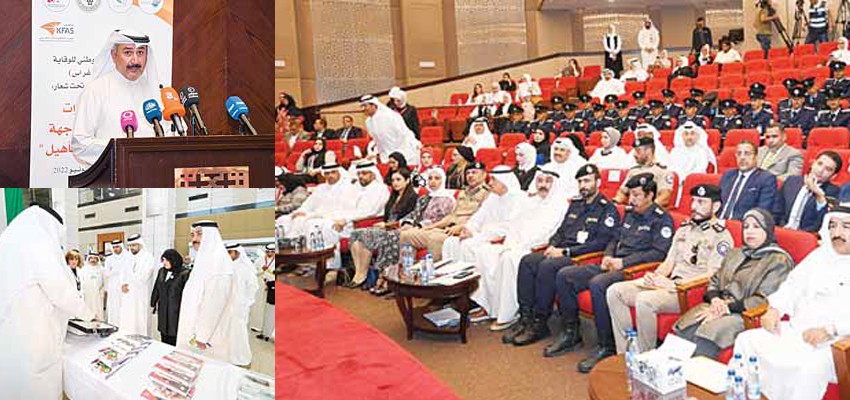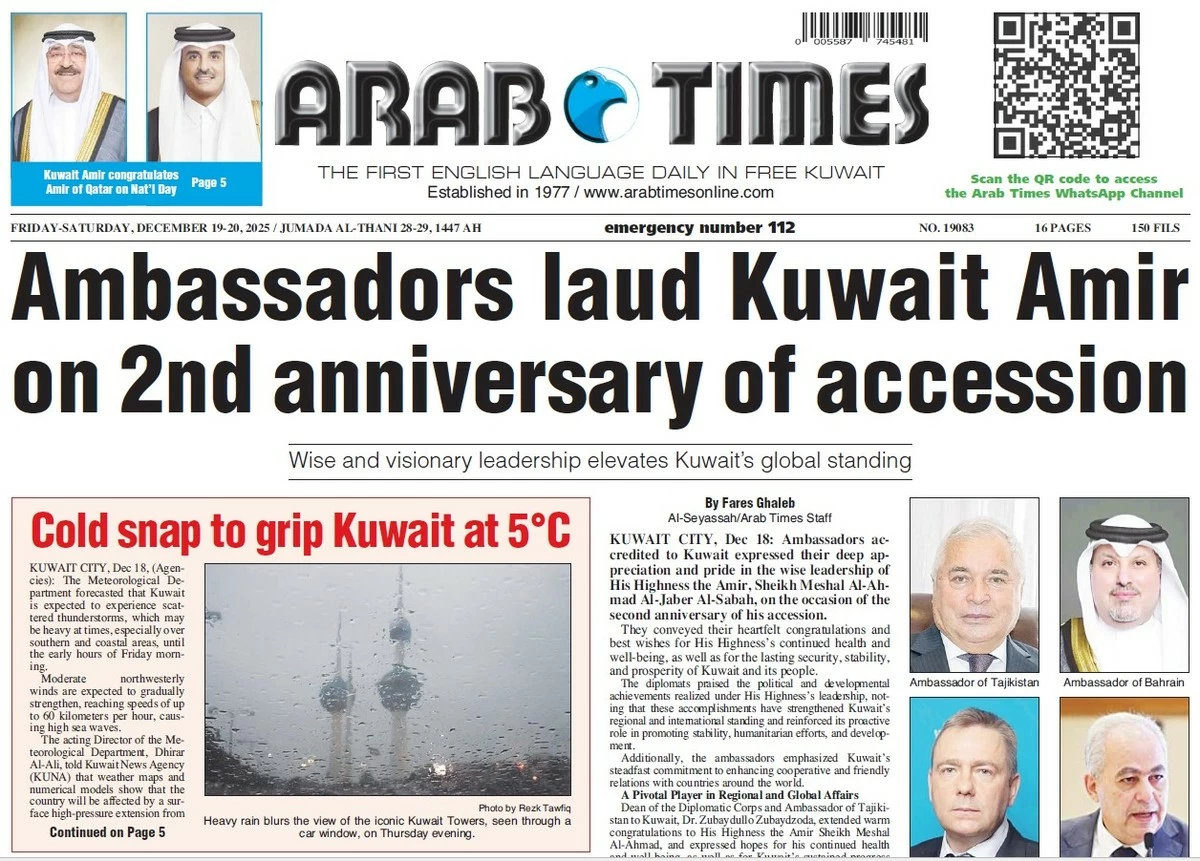21/06/2022
21/06/2022
‘Fight against drugs is a societal responsibility’
KUWAIT CITY, June 21: Once again, the issue of drugs -- abuse, possession and smuggling – has not only shown its ugly face, but the devastating phenomenon warns of serious consequences, reports Al-Rai daily. This came as part of the scientific papers presented at the 37th conference of the National Awareness Project for Drug Prevention (Grass), in cooperation with the International Organization for Women Empowerment and Capacity Building, which was held under the title ‘Kuwaiti Trainers Without Borders’ team, with support from the Kuwait Foundation for the Advancement of Sciences (KFAS). A total of 26 papers were presented during the conference which was attended by about 150 people interested in this issue. One of papers presented during the conference said, “Kuwait is no longer just a transit point for drug trafficking, as it was in the past, but rather has become a target point for drug traffickers.”

Flooded
A visual presentation at the conference showed how Kuwait, according to the latest statistics for the last five years, is flooded with hashish, shabu, chemical and marijuana, while the number of drug cases, according to the statistics of the last five years, reached 9,787, including possession with intent to use and trafficking. The President of the Conference and CEO of the National Project for Drug Prevention (Grass) Dr. Ahmed Al-Shatti stressed that “the fight against drugs is a societal responsibility in which everyone takes part,” adding, “We were cut off for two years due to pandemic, but now we are returning with force, amid the participation of Arab and American working papers, which simulate challenges and needs, and we need to assess the current situation and know strengths and weaknesses, types of treatment and typical drug-related diseases.”
He pointed out that “international statistics indicate that the number of drug users has reached nearly 5 percent of the world’s population, and this calls us to work more to confront this danger,” noting that “a Lebanese working paper showed that 5 percent of schoolchildren between the ages of 13 to 15-year-olds have tried drugs once, and 70 percent of them still use drugs.” The paper showed, “In Kuwait, there is an increase number of seizures, the number of drug cases in the Ministry of Justice, and the number of active files in the addiction treatment center,” pointing out that “one of the papers that has been submitted indicated that there were 24,000 cases that were transferred to the addiction management laboratory or forensic medicine from 2015 to 2018.
He said, “In Kuwait, there are indicators more than numbers, for the difficulty of registering some due to stigma or the impact on the chances of appointment, while the latest statistics indicate that there are 20,000 active files in the Ministry of Health,” noting that “new types of chemical drugs pose a global challenge.” The United Nations report says that the Gulf is targeted by what it calls the ‘dumping ground’ adding, “Although abuse globally starts from the age of about 13, there is a working paper that talks about the hidden pandemic, which is about elderly drug users, whose number has reached 700 million people over the 65”.


